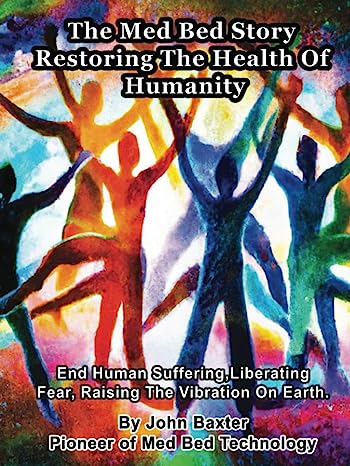Sleep is more than just a nightly recharge for your body—it's a complex process made up of distinct sleep stages, each playing a crucial role in your health and well-being. The science of sleep has shown that progressing through these phases, from light sleep to deep sleep and REM (rapid eye movement) sleep, is essential for physical recovery, cognitive function, and emotional balance. In this article, we will explore the different sleep stages and why they are vital to your overall health.
The Four Stages of Sleep
Sleep is divided into two main categories: non-REM sleep (which has three stages) and REM sleep. Each stage serves a different purpose, and cycling through all stages multiple times during the night is key to restorative sleep. A typical sleep cycle lasts about 90 minutes and repeats throughout the night, allowing the body and mind to recover and refresh.
Stage 1: Light Sleep (NREM)
Stage 1 is the transition from wakefulness to sleep and typically lasts just a few minutes. During this stage, your body begins to relax, and your brain activity starts to slow. You may experience a sense of drifting in and out of consciousness, and sudden muscle twitches or jerks are common.
Why it matters: Although brief, light sleep plays an important role in allowing your body to relax. It's the phase where your body starts to prepare for deeper sleep, and you become less aware of your surroundings. If your sleep is frequently interrupted during this stage, you might find it harder to fall into the deeper, more restorative sleep phases.
Stage 2: Deeper Light Sleep (NREM)
Stage 2 is characterized by a further slowing of brain activity and the relaxation of the muscles. During this phase, your heart rate and body temperature decrease as your body prepares for deep sleep. This stage lasts about 20 minutes per sleep cycle and accounts for roughly 50% of your total sleep.
Why it matters: Stage 2 sleep is crucial for physical recovery. It allows your body to regulate vital functions such as heart rate, blood pressure, and breathing. Research shows that getting adequate Stage 2 sleep helps support cardiovascular health and maintain optimal bodily functions.
Stage 3: Deep Sleep (NREM)
Also known as slow-wave sleep, Stage 3 is the deepest and most restorative stage of non-REM sleep. During this stage, your brain activity slows significantly, and your body enters repair mode. This is the phase where your muscles and tissues heal, your immune system strengthens, and essential hormones such as growth hormone are released.
Why it matters: Deep sleep is essential for physical recovery and overall health. Studies show that without enough deep sleep, your body struggles to repair tissues, regulate metabolism, and build a strong immune system. Deep sleep also supports cognitive functions like memory consolidation, making it a vital phase for both your body and brain.
REM Sleep: Dream Stage
REM sleep is the final stage of the sleep cycle, and it’s the stage most associated with vivid dreams. During REM sleep, brain activity becomes more similar to wakefulness, and the brain works to consolidate memories, process emotions, and enhance learning. Meanwhile, the body experiences temporary paralysis, preventing you from acting out your dreams.
Why it matters: REM sleep is critical for cognitive health and emotional balance. Research shows that during REM sleep, the brain strengthens neural connections, improves memory, and processes emotional experiences. A lack of REM sleep has been linked to poor mental health outcomes, including anxiety, depression, and memory problems.
Why Are Sleep Stages Important?
Each sleep stage serves a unique function in maintaining physical, mental, and emotional well-being. When we cycle through all the stages of sleep, our bodies experience the full benefits of restorative sleep. Here’s a deeper look at why the stages of sleep are crucial for overall health:
1. Physical Recovery and Immune Support
Deep sleep (Stage 3) is where your body does the bulk of its recovery work. During this phase, muscles rebuild, tissues regenerate, and the immune system gets a boost. Skipping this stage or getting too little deep sleep can leave you feeling fatigued and make you more susceptible to illness.
- Research insights: Studies have shown that sleep deprivation, particularly a lack of deep sleep, weakens immune function, making it harder for your body to fight off infections. Chronic sleep loss can also lead to long-term health issues like obesity, diabetes, and heart disease.
2. Cognitive Function and Memory
REM sleep is when the brain processes memories and sharpens cognitive skills. During this phase, your brain consolidates new information and prepares you for problem-solving and learning the next day. A lack of REM sleep has been linked to memory deficits and difficulty concentrating.
- Research insights: Research published highlights that people who don’t get enough REM sleep are more prone to memory problems and cognitive decline. This stage is especially important for students and those who need to retain complex information.
3. Emotional Balance
Sleep helps regulate your mood by allowing the brain to process emotions during REM sleep. When you don’t get enough REM sleep, emotional regulation becomes difficult, leading to mood swings, irritability, and increased stress levels. This can affect your relationships, work performance, and overall quality of life.
- Research insights: A study published in the journal Sleep found that REM sleep is essential for processing emotional experiences. People who are sleep-deprived are more likely to struggle with emotional control and are at a higher risk for anxiety and depression.
How to Improve the Quality of Your Sleep Stages
Ensuring that you cycle through all stages of sleep is essential for reaping the full benefits of rest. Here are some tips to help improve your sleep health and optimize your sleep cycles:
1. Stick to a Consistent Sleep Schedule
Going to bed and waking up at the same time every day, even on weekends, helps regulate your circadian rhythm, which is your body’s natural sleep-wake cycle. A consistent routine ensures you move through all sleep stages effectively.
2. Create a Sleep-Friendly Environment
Your sleep environment plays a crucial role in sleep quality. Keep your bedroom dark, cool, and quiet to promote uninterrupted sleep. Consider using blackout curtains, white noise machines, or earplugs to block out any disturbances.
3. Limit Caffeine and Alcohol
Caffeine and alcohol can disrupt your sleep cycles by preventing you from entering deep sleep and REM sleep. It’s best to avoid these substances in the hours leading up to bedtime to allow your body to go through the full sleep cycle uninterrupted.
4. Relax Before Bed
Develop a relaxing bedtime routine to help your body transition into sleep mode. Activities such as reading, meditation, or a warm bath can signal to your brain that it’s time to wind down.
Conclusion: Prioritize Your Sleep Stages for Optimal Health
Understanding the different sleep stages and their importance to your health is the first step toward improving your sleep quality. By ensuring that your body progresses through each stage, you’re supporting your physical recovery, cognitive function, and emotional balance. Whether it’s through a consistent sleep schedule, optimizing your environment, or reducing stimulants like caffeine, small changes can make a big difference in how well you sleep and how you feel each day.
For more insights on sleep and health, explore resources at https://sleeplongevityhub.com, where you’ll find valuable tips to enhance your sleep quality and support your overall well-being.




